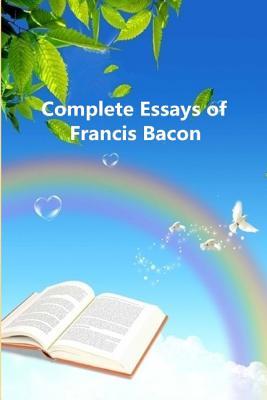Complete Essays of Francis Bacon
by Francis Bacon
The Book collects the complete essays of Bacon, totaling 59, they are: 01. Of Truth 02. Of Death 03. Of Unity 04. Of Revenge 05. Of Adversity 06. Of Simulation and Dissimulation 07. Of Parents and Children 08. Of Marriage and Single Life 09. Of Envy 10. Of Love 11. Of Great Place 12. Of Boldness 13. Of Goodness & Goodness of Nature 14. Of Nobility 15. Of Seditions and Troubles 16. Of Atheism 17. Of Superstition 18. Of Travel 19. Of Empire 20. Of Counsel 21. Of Delays 22. Of Cunning 23. Of Wisdom For a Man
Paperback, 208 pages
Published August 4th 2017 by Independently Published
tags: philosophy
© 2025 Bibleportal.com 版权所有.

Sir Francis Bacon, 1st Viscount St Alban KC, son of Nicholas Bacon by his second wife Anne (Cooke) Bacon, was an English philosopher, statesman, scientist, lawyer, jurist, and author. He served both as Attorney General and Lord Chancellor of England. Although his political career ended in disgrace, he remained extremely influential through his works, especially as philosophical advocate and practitioner of the scientific revolution. Bacon was knighted in 1603, created Baron Verulam in 1618, and Viscount St Alban in 1621.
There are some scholars who believe that Bacon's vision for a Utopian New World in North America was laid out in his novel The New Atlantis, which depicts a mythical island, Bensalem, in the Pacific Ocean west of Peru. He envisioned a land where there would be greater rights for women, the abolishing of slavery, elimination of debtors' prisons, separation of church and state, and freedom of religious and political expression. Francis Bacon played a leading role in creating the British colonies, especially in Virginia, the Carolinas, and Newfoundland.
Thomas Jefferson considered Francis Bacon to be one of the three greatest men who ever lived, "Bacon, Locke and Newton" were "the three greatest men that have ever lived, without any exception." Francis Bacon's influence can also be seen on a variety of religious and spiritual authors, and on groups that have utilized his writings in their own belief systems.
... Show more